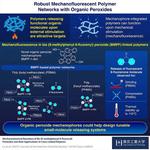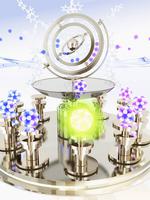Other

“New phased-array transmitter design overcomes common problems of CMOS technology in the 300 GHz band, as reported by scientists from Tokyo Tech. Thanks to its remarkable area efficiency, low power consumption, and high data rate, the proposed transmitter could pave …

“The discovery of Ba2LuAlO5 as a promising proton conductor paints a bright future for protonic ceramic fuel cells, report scientists from Tokyo Tech. Experiments show that this novel material has a remarkably high proton conductivity even without any additional chemical …

“Circadian rhythms are natural, internal oscillations that synchronize an organism’s behaviors and physiological processes with their environment. These rhythms normally have a period of 24 hours and are regulated by internal chemical clocks that respond to cues from outside …
“A large, unconventional anomalous Hall resistance in a new magnetic semiconductor in the absence of large-scale magnetic ordering has been demonstrated by Tokyo Tech materials scientists, validating a recent theoretical prediction. Their findings provide new insights into the anomalous Hall …

“A new organic peroxide molecule, BMPF, prepared by scientists at Tokyo Institute of Technology (Tokyo Tech), releases fluorescence under mechanical stress and could be incorporated into polymer networks for mechanofunctional design. BMPF-linked polymers are also stable at relatively high …

“Scientists at Tokyo Institute of Technology have developed a computational method based on large-scale molecular dynamics simulations to predict the cell-membrane permeability of cyclic peptides using a supercomputer. Their protocol has exhibited promising accuracy and may become a useful tool …

“Scientists at Tokyo Institute of Technology demonstrate the artificial control of crystal structure dimensionality to switch electronic conductivity in three orders of magnitude. The scientist succeeded to induce the direct phase transition between three dimensional and two dimensional crystal structures …
“Scientists at Tokyo Institute of Technology (Tokyo Tech) demonstrate double charge carrier type switching of tin monoselenide (SnSe) semiconductor by doping of antimony (Sb). The SnSe carrier type switches from p-type to n-type, and re-switches to p-type as doping increases …

“Scientists at the Tokyo Institute of Technology (Tokyo Tech) have come up with a simple method to evaluate the strength and performance of polymer materials. They present their innovation in the latest issue of Angewandte Chemie International Edition, and hope …

“Scientists at Tokyo Institute of Technology (Tokyo Tech) synthesize sub-nanometer particles with precisely controlled proportions of indium and tin using specific macromolecular templates called dendrimers. Through a screening process spanning different metallic ratios, they discovered unusual electronic states and optical …

